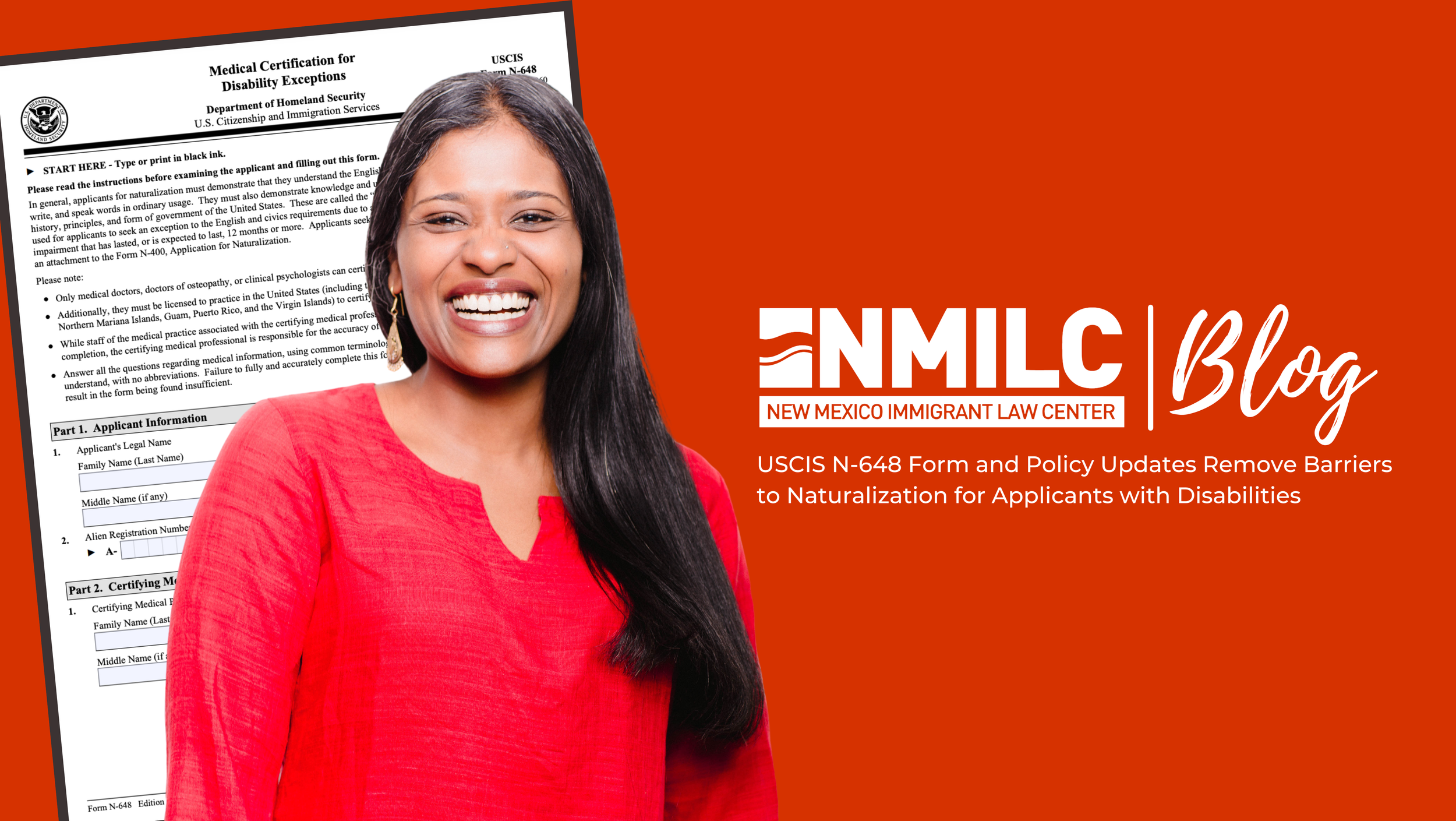USCIS N-648 Form and Policy Updates Remove Barriers to Naturalization for Applicants with Disabilities
By: Shalini Thomas / Supervising DOJ Accredited Representative
November, 15 2022
Last month, U.S. Citizenship and Immigration Services (USCIS) announced an updated policy guidance to clarify and conform with the revision of Form N-648, Medical Certification for Disability Exceptions. This update will help our N-400 applicants who, for medical reasons, can't read, write, or speak English and need to learn the answers to the civics test.
This is fantastic news!
While the N-648 has existed for as long as I can remember, this change means the form is cut down to five pages instead of nine. It also gets rid of a lot of duplicative questions and makes the form a lot easier for a doctor to complete. Just in the last year, our Citizenship & Residency team has spent many hours and resources working with clients on N-648 forms. I can't think of a single one we didn't send back to the doctor with a request for corrections and edits. The length and the duplicity of content in the old form meant a lot of wasted time for us, for clients, and for doctors, even for the clients whose inability to learn English and/or civics due to disabilities or impairments was clear.
The form update also makes it easier for our clients with severe disabilities and impairments. There has always been a process through which USCIS can waive the Oath of Allegiance for clients who, due to diminished mental capacity, cannot understand the Oath of Allegiance, even in a language of their choosing. This process used to be fairly onerous - it required an additional letter from their doctor in addition to a letter from their caregiver. The requirements for the letter were so strict that it was exceptionally rare to obtain a strong enough letter the first time we requested one. With the new form, doctors just have to mark two boxes on the N-648 to indicate the client cannot understand the Oath of Allegiance!
As the daughter of a doctor, I applaud the trust this update puts on medical professionals. If a doctor says a patient is incapable of learning English or the test, USCIS should not second guess the doctor's diagnosis. The new form makes it clear that the doctor's opinion and diagnosis is sufficient, which is the way it should be, and isn't the way the old form was.
My mother, Dr. Sarah Thomas, is a family doctor and also volunteers as an NMILC medical pro bono. She has helped me make the process of requesting N-648 forms and N-648 form corrections more understandable for other doctors. She says that for most patients, this update cuts the time it takes to fill out the form down to 5-10 minutes, even with patients where there is no prior relationship established. Previously, she says it would've been hard to fill out the form in a single visit since it would take anywhere from 20-30 minutes.
“As an immigrant who went through the naturalization process myself, I'm happy and pleased when I can help other immigrants, ''says Dr. Sarah Thomas, family medicine physician, and NMILC medical pro bono. It's great to see it become so much easier for me to do so!”
There is no question in my mind that the new form won't take nearly as many resources, which is good for our clients and good for the overworked doctors who are working with them. It's clear this will allow us to more efficiently use our resources to help more people become citizens.
Shalini Thomas is the Supervising DOJ Accredited Representative at NMILC.

